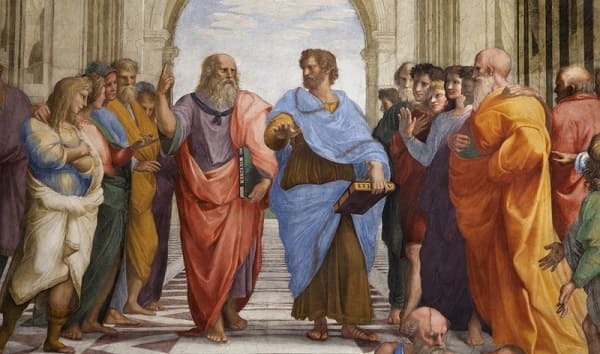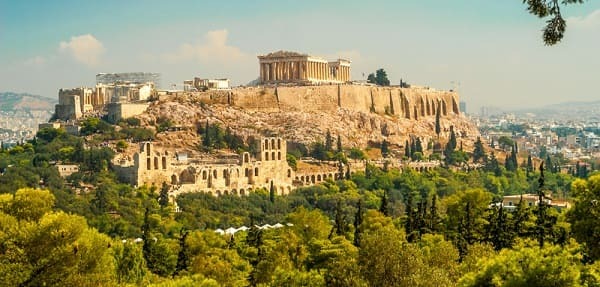

Athenian democratic system of government was developed in the 6th century B.C. Athens. It was one of the most famous democratic systems in Greece.
Around the sixth century BC, Athenian democracy emerged in the Greek city-state (known as a polis) of Athens, which included the city of Athens and the surrounding territory of Attica.
It is a response to aristocratic dominance and rivalry among the aristocratic people of Athens. It was the first known democratic form of government known to mankind. Furthermore, it has deep historical roots dating back to its inception and a series of reforms against the aristocracy to make the system more inclusive.
According to Thucydides, Athens was first unified by Thecus into city-states or polis. Monarchs were replaced as rulers of the state by archons, who were high officials and aristocratic people.
Basilleus was in charge of religious and state rituals. Polemarch was in charge of war and military affairs. Eponymous, state chief magistrate and general administrator. These three important officials are referred to as aeropagus and are appointed by oligarchic institutions.
In 632 BC, Cylon wanted to become the tyrant of Athens with the help of his father-in-law, who was a tyrant of the neighbouring state of Megara. He attempted to seize power but failed to succeed against the Alcmaeonians; later, he was killed after his defeat.
After 30 years, the Cylon family accused the Alcmaeonids of murder and expelled the Alcmaeonids from Athens as part of their family rivalry.
In the sixth century B.C. socioeconomic conditions in Athens and Greece suffered as a result of population growth. Peasants had to pay 1/6th of their produce to the landowner. By 600 AD, as the condition grew far worse, an increase in debt forced them to sell themselves and their families into slavery.
These conditions paved the way for many revolts, and this led to the emergence of individuals as tyrants and the rise of power. This disturbed the aristocratic family, and their constant unrest made the condition of Athens difficult to keep united. It was hard for them to even raise an army. As the neighbouring country, Megara was growing more hostile every day.
This situation put Areopagus under pressure to come up with a solution for the well-being of Athens. They installed dictator Salon, a dictator-like figure, as the ruler of Athens.

Detailed view of fresco
Description- The School of Athens by Raphael Sanzio, Italian Renaissance painter in the Vatican museum
He acted as a go-between for the well-born (agathoi) and the low-key freemen (kakoi), attempting to make changes without upsetting justice for both. He abolished lending to address the debt the farmers had to pay and gave back ownership of the land.
Political participation was expanded. The political establishment of solely aristocratic families was reworked by including all citizens of Athens.
A four-class hierarchy was drawn based on their land ownership and property ownership: the pentakosiomedimni, the hippies, the zeugitae, and the thetas.
The election was open to the top two hierarchies, i.e., the pentakosiomedimni and the hippies. They also included a large group of non-nobles, and it started to become less aristocratic; later, the top three were open to elections.
The thetes were barred from political participation but welcomed into the new popular assembly, “ecclesia,” which was open to all males.
The reforms given by him in 508 and 507 B.C. undermined the dominance of aristocratic families and connected every Athenian to the city's rule.
He reduced the aeropause's power, and membership in the planes was extended to lower-level citizens who owned property.
In 413 BC, Athens was defeated in a Sicilian campaign, which limited their democracy and led to the establishment of an oligarchy, but this oligarchy lasted just for four months. Democracy was replaced in Athens until it surrendered to the Spartans and the Macedonian army of Philip II, who conquered Athens in 338 BC.
Later, democracy was restored in 307 BC, when Demetrius ended Cassandro’s rule over Athens as he went into exile.
Athens became part of Rome in 146 BC; it became autonomous and managed all its internal affairs. During the Augustus empire, Athens' independence was lost, and a Roman municipality with a senate was established.
Males who completed their military training as “ephebes” could obtain citizenship.
Citizenship by birth applies to children with an Athenian father only or both an Athenian father and an Atheniabn mother. Citizenship can only be obtained after the reformation of Pericles and Cimon in 450 BC if a child is a descendant of Athenian parents (both mother and father must be Athenian).
Slaves, freed slaves, children, women, and foreign residents were excluded from citizenship. Voting rights were suspended for those who failed to pay their debt.
The government body of Athens takes important decisions about warfare and foreign policy, writes and revises laws, and condemns the conduct of public officials.
They met every day, supervised government workers, and were in charge of things like navy ships and army horses. Dealt with ambassadors and representatives from city-states. They elected representatives through a lottery system.
Contributing to the strength of democracy, the jury has unlimited power. Both sides made prosecution arguments and delivered verdicts and sentences.

Acropolis of Athens
Description- View at The Acropolis of Athens
Though democracy was replaced with oligarchy, it remains the finest example of the first democratic form of government in the world. It addressed the issues of well-being as well as the low-key people of Athens by serving justice to both. It paved the way for independence and an escape plan from orthodox tradition in decision-making, as well as equal opportunity for all. No wonder it stands as the father of democracy.
Q1. How long did the salon reforms last?
Ans. Salonic reforms were valid for ten years, as he got assurance from Aeropagus, after which he left Athens and went abroad.
Q2. Who is the father of Athens' democracy?
Ans. In 508-507 BC, Cleisthenes, known as the “Father of Athenian Democracy,” established the first example of this type of democracy.
Q3. What is liturgy?
Ans. Athens' economy did not work on taxation; customs duties were laid on “Metoikoi” as part of its liturgy established by the city-state, where aristocratic members financed the state voluntarily.